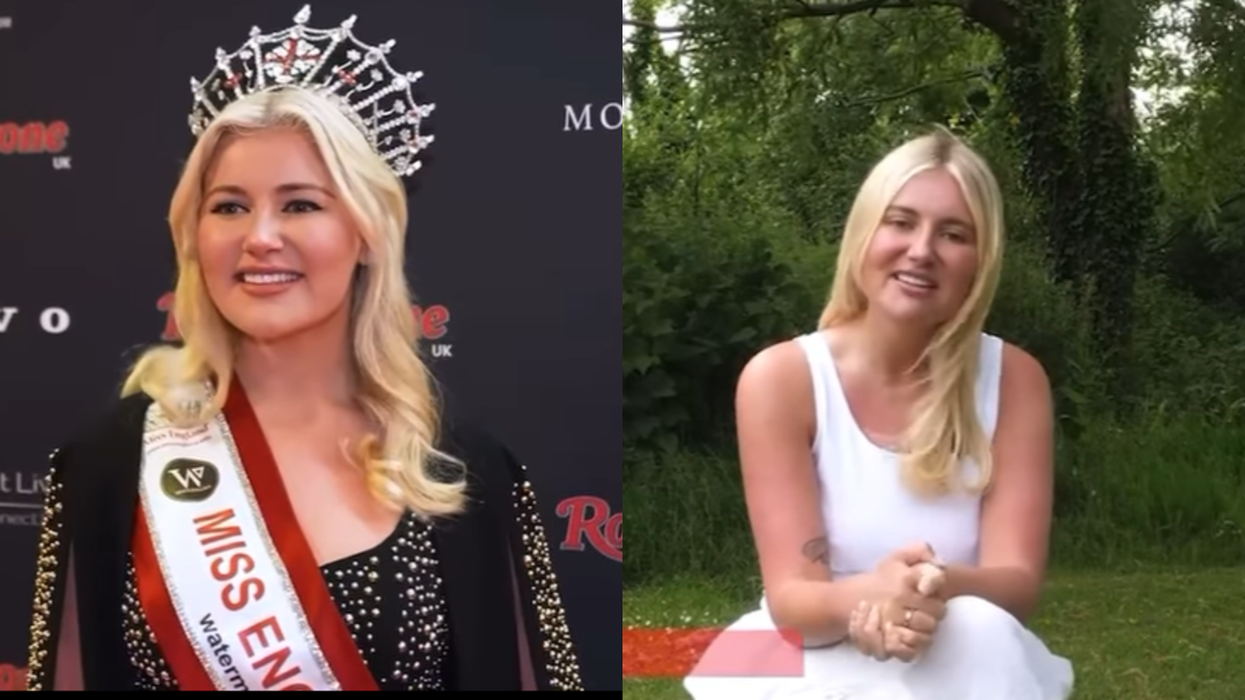When Miss England, Milla Magee, packed her bags and walked out of the Miss World 2025 stage in Hyderabad, she didn’t just make headlines, she blew the lid off a global beauty empire. For the first time in the contest’s 74-year history, a titleholder quit mid-competition, and her reasons hit hard: exploitation, hypocrisy, and outdated values dressed up in sequins.
Here are the five biggest revelations from a scandal that’s shaking the pageant world to its core:
1. “We were props for rich men” – Magee’s disturbing allegations
Magee painted a picture of contestants whisked from one polished gala to the next, all day and all night, clad in couture gowns and heavy make-up. But behind the lens? Magee said contestants were “farmed out” to entertain wealthy male sponsors at exclusive dinners, calling the experience degrading and old-fashioned.
“It made me feel like a prostitute,” she told reporters. “I couldn’t be part of it anymore.”
She also claimed there was constant pressure to look picture-perfect even during breakfast and said organisers scolded women who weren’t “exciting” enough for social media or the sponsors.
2. Two different stories and one huge question mark
While Magee said she left due to personal and ethical concerns, Miss World officials claimed she initially cited a family emergency. Miss World CEO Julia Morley fired back, suggesting Magee "believed she didn’t stand a chance," releasing sunshiny, unedited clips of Magee raving about Hyderabad’s "amazing biryani" as a jarring counterpoint to her later allegations.
Miss World CEO Julia Morley said, “She left with our support. Then we saw articles implying something very different.”
This raises a big question: Was Magee’s exit planned from the start, or did she have a change of heart after seeing what went on behind the scenes?
3. What the official inquiry found (and what it didn’t)
Telangana’s government responded fast, launching an investigation led by top officials, including three senior women police officers. CCTV footage from the key dinner event showed Magee sitting with four women and one senior IAS officer and not a room full of “middle-aged men.”
Other contestants interviewed didn’t back up Magee’s claims. Most complaints? Too many selfies and tight schedules. The inquiry head even floated the idea of a deliberate smear campaign against India and hinted that this might have been an attempt to smear the country's image.
Still, the fact that Magee was the only one to speak out raises uncomfortable questions about what actually happened, the silence, pressure, and fear in competitive environments.
4. Politicians got involved and the response was mixed
The scandal ripped through Telangana’s politics. Opposition leader K. T. Rama Rao, declaring "as a father of a girl," issued a raw apology: "I condemn what you experienced... This doesn’t represent Telangana’s culture," demanding a fair probe. State officials, however, went on the offensive, accusing Magee of outright "gaslighting," highlighting her brief 8-day stay, and muttering about legal defamation suits.
They claimed footage from the Chowmahalla banquet contradicted Magee’s claim of being seated with predatory sponsors, showing her sitting with four women and one senior IAS officer.
5. The bigger battle: beauty vs. values
Magee’s walkout wasn't just about one night; it cracked open the pageant’s identity crisis. Remember, this is a lifeguard who’d already swapped swimsuits for CPR tests in Miss England, pushing purpose over pin-ups. With runner-up Charlotte Grant stepping into Magee’s shoes for the 31 May finale, the question looms: will organisers truly embrace change, or merely paper over cracks with some fresh lipstick?
The story isn't over and neither is the pageant
With the Miss World 2025 grand finale just days away on 31 May, the spotlight is now split between the crown and the controversy. Milla Magee’s dramatic exit has pushed uncomfortable truths into the open, almost forcing the industry to reckon with its image, ethics, and expectations. Whether her claims are true or if all of it leads to real change or get swept under the red carpet remains to be seen. But one thing is clear: the glitz of the pageant world no longer hides the cracks and the world is watching what happens next.





